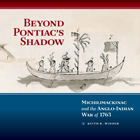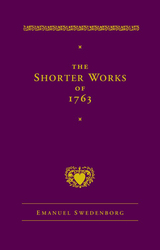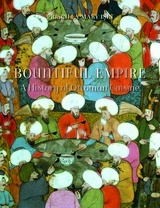
On June 2, 1763, the Ojibwe captured Michigan’s Fort Michilimackinac from the British. Ojibwe warriors from villages on Mackinac Island and along the Cheboygan River had surprised the unsuspecting garrison while playing a game of baggatiway. On the heels of the capture, Odawa from nearby L’Arbre Croche arrived to rescue British prisoners, setting into motion a complicated series of negotiations among Ojibwe, Odawa, and Menominee and other Indians from Wisconsin. Because nearly all Native people in the Michilimackinac borderland had allied themselves with the British before the attack, they refused to join the Michilimackinac Ojibwe in their effort to oust the British from the upper country; the turmoil effectively halted the fur trade. Beyond Pontiac’s Shadow examines the circumstances leading up to the attack and the course of events in the aftermath that resulted in the regarrisoning of the fort and the restoration of the fur trade. At the heart of this discussion is an analysis of French-Canadian and Indian communities at the Straits of Mackinac and throughout the pays d’en haut. An accessible guide to this important period in Michigan, American, and Canadian history, Beyond Pontiac’s Shadow sheds invaluable light on a political and cultural crisis.

The four main short works in this volume by Swedish theologian Emanuel Swedenborg (1688–1772) form the basic foundation of his thought. Although originally printed as if they were stand-alone volumes, they have nearly always been published together, generally under the collective title “The Four Doctrines.”
The Lord discusses the nature of the man known as Jesus Christ, his divine nature, and the meaning of his crucifixion. For Swedenborg, Jesus was not simply a man, but the eternal divine that came to earth for the salvation of humanity.
Sacred Scripture is about the Word, by which Swedenborg means the parts of the Bible that he feels reflect a deep spiritual teaching. Swedenborg believes that study of the Word—which contains a wisdom that predates the written Bible and also transcends it—is the key to humanity’s spiritual development and its eventual union with the Lord.
Life discusses the nature of good and evil and the necessity of shunning sin and evil in order to experience true faith and become a spiritual person. In other words, this work is about how we ought to live.
Faith talks about faith as an acknowledgment of inner truth and the necessity of expressing such faith through good actions rather than simply holding beliefs. Swedenborg also delves into the true nature of charity and the way that it interweaves with faith to produce true goodness.
In addition to these short works, the volume includes a fifth work, which consists of two supplements to previous works by Swedenborg: a brief addition to Last Judgment and a longer addition to Heaven and Hell.
READERS
Browse our collection.
PUBLISHERS
See BiblioVault's publisher services.
STUDENT SERVICES
Files for college accessibility offices.
UChicago Accessibility Resources
home | accessibility | search | about | contact us
BiblioVault ® 2001 - 2025
The University of Chicago Press









